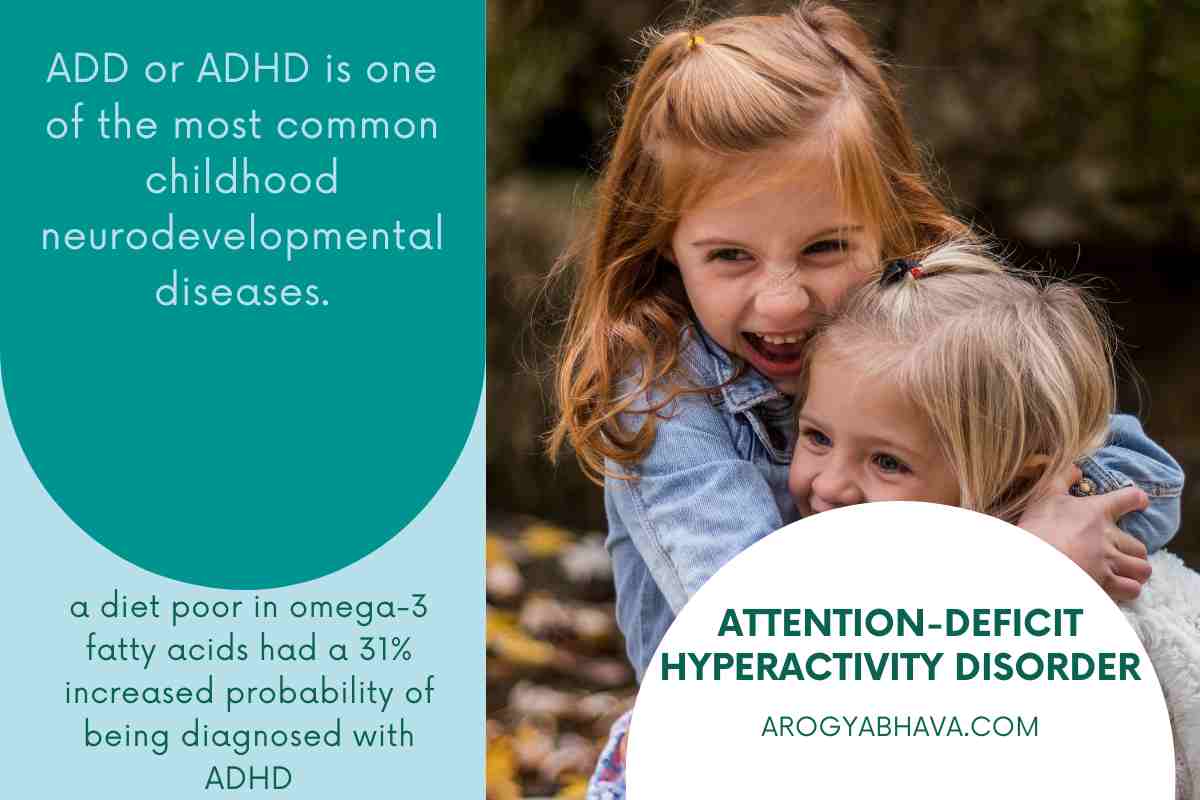ADHD: Symptoms and Treatment

ADHD or Attention-deficit Hyperactivity Disorder: ADD or ADHD is one of the most common childhood neurodevelopmental diseases. It is typically diagnosed in childhood and might extend into adulthood. Children with ADHD may have difficulty paying attention, restraining impulsive behaviours (doing without considering the outcome), or being extremely active.
Before we discuss ADHD treatment symptoms, let’s briefly discuss ADHD itself.
What is ADHD?
Millions of children in the world are believed to suffer from ADD – Attention Deficit Disorder or ADHD – attention-deficit hyperactivity disorder. Some estimates currently approximate up to an astounding 5% of school-aged children have this condition. The exact cause of the disorder is still unknown, but it is believed to have a neurobiological basis, pr a possible hereditary component.
ADHD is classified as a behavioural disorder, and ADHD symptoms can be manifold.
There are even different types of ADHD such as ADHD inattentive, or ADHD characteristics in adults.
ADHD in Adults
An estimated 4% to 5% of adults in the US alone are believed to have this condition, although most of them are unaware of it and go undiagnosed and untreated. The symptoms of ADHD in adults are pretty similar to those found in children.
For example, some of these symptoms may be:
- poor focus or concentration on tasks
- poor organizational abilities
- low self-esteem
- difficulty in reading
- easily distracted
- awkwardness/clumsiness
- forgetful
Difference between ADD and ADHD
The distinction between ADD and ADHD is arbitrary. ADHD (attention deficit disorder) is a defunct moniker for what is now known as ADHD (attention-deficit hyperactivity disorder). Some children with ADHD exhibit hyperactive behaviours, while others do not, but the diagnosis remains ADHD in either case.
ADHD Symptoms
Some of the more common ADHD symptoms include
- The inability to concentrate
- Being easily distracted
- Inability to follow through or carry out tasks
- Short attention spans
- Problems in organizing
- Impulsive behaviour, and
- Hyperactivity.
ADHD inattentive type
There are several types of ADHD. Inattentive type ADHD is characterized by difficulty in focusing on tasks, mental wandering, and a proclivity to daydream.
In a more list form, here are some possible symptoms of this type of ADHD:
- hard time focusing attention on tasks (or even fun, playful activities)
- prone to mistakes or sloppiness in homework assignments and schoolwork due to poor attention to details
- appears easily distracted
- the hard time following through on duties, chores
- poor organizational abilities regarding activities
- shuns mentally demanding tasks that require focus
- forgetful
- easily bored
3 Things to do when diagnosed with ADHD inattentive type in Children
If you have a child diagnosed with this type of ADHD, there are certain things you can do and things you have to keep in mind to ensure their progress and development.
- First, because they are easily distracted, you must eliminate bothersome external stimuli when they are trying to focus on such things as schoolwork. For example, do not allow the TV to be on when he or she is trying to do homework.
- Second, be there for your child to help him or her out while doing school work or studying for a test. If your child becomes frustrated, display sympathy and understanding and not harshness.
- Third, set up a good routine. For example, at 7 pm every night before dinner, homework is done. This kind of structure may help him or she organize priorities and focus.
Following these steps may help your child if he or she is diagnosed with ADHD inattentive type.
ADHD Treatments
There are various treatments as discussed briefly below.
Prescription ADHD Treatments
There are few medications that is often prescribed for this condition. These medications clearly have their benefits, but they also have potentially adverse side effects. It’s important to carefully discuss these with your physician.
Psychotherapy ADHD treatments
Included within this group are such tactics and techniques as individual counseling and training. The objective here is to provide careful attention to the special educational and socialization needs of ADHD children so that they, later on, become functional adults.
Dietary/Nutritional Treatments
Some Naturopathic doctors believe that the growing ADHD problem is in part the result of today’s poor nutritional choices of many children.
For example, there is a raging controversy on the effects of sugar on an ADHD child.
Omega-3 and ADHD
There is also a now-known link between ADD/ADHD and an Omega 3 fatty acid deficiency.
The best choice, many believe, is a natural medicine for ADHD
Consuming fewer omega-3 fatty acids raises the likelihood of getting ADHD. In a study of nearly 200 schoolchildren shows, those who had a diet poor in omega-3 fatty acids had a 31% increased probability of being diagnosed with ADHD. Children with ADHD have reduced omega-3 levels in their blood.
A few even believe that the best treatments are dietary changes and not prescription drugs, which they argue only treat ADHD symptoms and not underlying causes.
Common nutritional/dietary protocols include:
- Eliminating or severely restricting sugar, dairy,
- Eliminate products made with white flour from the diets of children with ADHD.
Also Read: Benefits of Running: It Can Benefit Your Emotional & Mental Health